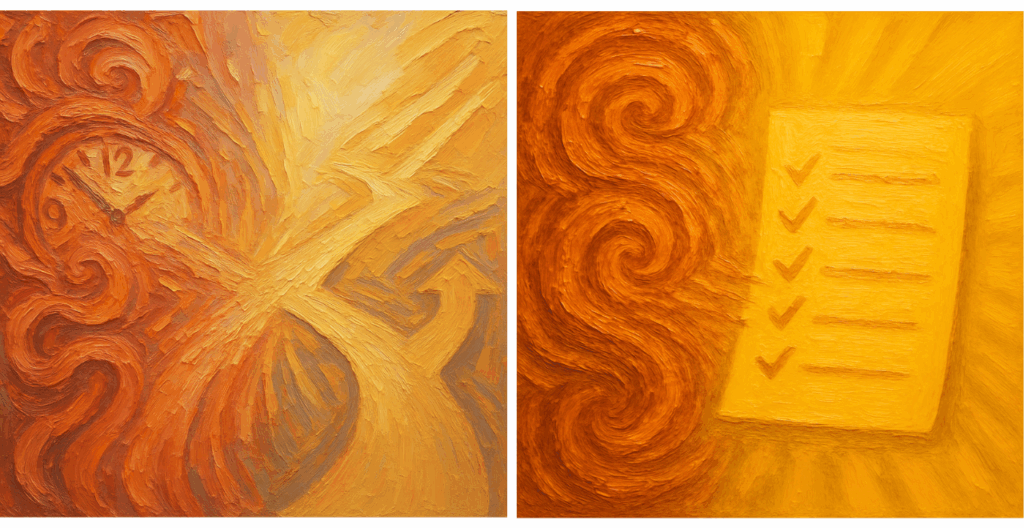
You’ve probably said it or heard it: “I work better under pressure.”
It feels true because when the deadline looms, your brain kicks into overdrive. That last-minute rush can feel productive (even thrilling!) but it’s not increased performance. It’s rushed performance to compensate for weeks of avoidance and inaction.
Procrastinating then rushing to finish a task isn’t about time management. It’s about emotion regulation. When a task feels uncertain or unpleasant, your brain looks for an escape hatch.
At the core of this dynamic is a conflict between two brain regions. In a simplified way, the limbic system (your emotional, reward-seeking center) wants comfort right now. The prefrontal cortex (your logical, future-planning center) wants long-term success.
But the limbic system can be faster and stronger. So unless you deliberately intervene, the part of your brain that prioritizes scrolling over writing that report will usually win.
What makes this even trickier is that there are long-term costs to procrastination. At first, you feel relief. But studies show that over time, procrastinators experience more stress, worse health, and lower performance.
That deadline high? It’s the trap. It rewards the brain for procrastinating, making you more likely to rely on panic again next time. Over time, this wires your brain to depend on urgency instead of intention.
So, how can you break this cycle without relying on pressure or guilt?
- Explore the task that scares you. Procrastination is often fear in disguise, whether that’s fear of failure, judgment, or discomfort. Use the Triple Check tool in Tiny Experiments (chapter 5) to engage with your procrastination with curiosity so you can regain a sense of agency.
- Start small to regain momentum. Commit to just 10 minutes of focused work. This trick lowers the barrier enough to engage your prefrontal cortex. Still struggling to get started? Reframe your task as “write one sentence” or “open the doc.”
- Add “micro-costs” for avoidance. Want to scroll? Make it inconvenient. Sign out, put your phone in another room, or block websites. These small friction points can delay impulsive decisions long enough for your rational brain to intervene.
Procrastination isn’t a moral failure. It’s a natural brain bias toward immediate reward, but it comes with long-term costs. Each time you choose action over avoidance, you’re not just checking off a to-do, you’re teaching your brain to not rely on the deadline high. And there’s no need for self-blame in that process – just curiosity.
